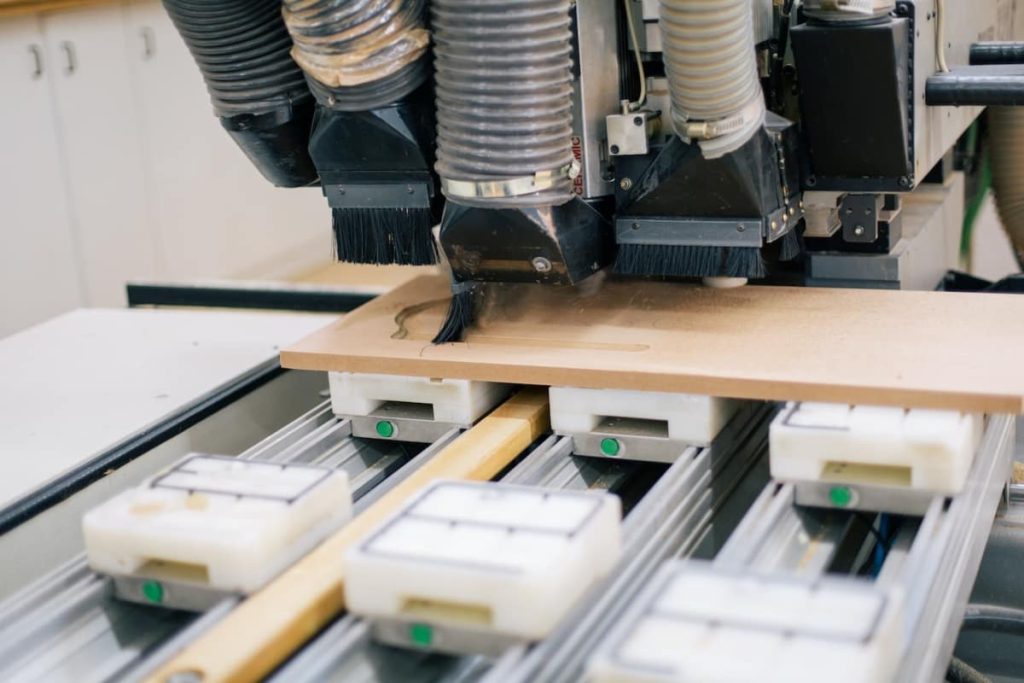The manufacturing sector has recently seen the emergence of machine learning as a potent new technology, transforming the industry’s old processes and opening up new opportunities for increased efficiency and production. Machine learning has the potential to generate improvements in a variety of elements of manufacturing, including quality control and maintenance, optimization, and decision-making. These gains can be driven by using sophisticated algorithms and data analysis. The article will discuss eight significant ways machine learning can enhance manufacturing methods. The applications discussed here show the revolutionary potential of machine learning in the manufacturing industry. These applications range from predictive analytics and anomaly detection to demand forecasting and process optimization.

Predictive Analytics for Maintenance
Predictive analytics made possible by machine learning allows manufacturers to foresee and forestall equipment faults. Machine learning algorithms can analyze data from sensors in real-time and record past maintenance to identify trends and anomalies that can indicate problems. By catching problems before they become critical, this kind of maintenance helps cut down on costly breakdowns. Manufacturers can optimize resource allocation and equipment lifespans by planning maintenance actions based on predictive information. Data-driven decisions on component replacements are another area where predictive analytics can help since they lead to better inventory management and lower overall costs.
Anomaly Detection and Quality Control
The integration of machine learning in manufacturing has revolutionized the field of quality control. Machine learning algorithms, powered by the analysis of massive datasets, have significantly improved the ability to detect trends and outliers in industrial processes. By leveraging sensor data and production indicators, these algorithms can identify irregularities and notify manufacturers of potential issues. Real-time anomaly detection enables prompt responses, preventing the production of defective goods and minimizing waste. Manufacturers can ensure high product quality by utilizing automated quality control procedures driven by machine learning, resulting in reduced rework and customer returns. This integration of machine learning in business not only optimizes the cost of quality control but also enhances customer satisfaction and product reliability.
Demand Forecasting and Inventory Optimization
Manufacturers can make better judgments and enhance their inventory management with the help of realistic demand forecasts made possible by machine learning. Machine learning models can provide more precise consumer demand forecasts by analyzing massive volumes of sales data and accounting for external variables like market trends, promotions, and seasonal swings. Manufacturers can use these predictions to plan production, maximize efficiency, and make informed inventory choices. Having items on hand when consumers need them and reducing holding costs and waste can be achieved when production is planned around demand. This boosts productivity and profits while also increasing client happiness.
Process Optimization and Efficiency
Machine learning is reshaping the optimization of industrial processes by giving actionable insights and guidance. Machine learning algorithms can find trends and outliers in production data that human operators might miss. These models are excellent for identifying inefficiencies in production and determining which parameters should be improved upon. Firms can now act on this information to improve efficiency and output and make data-driven choices. Machine learning algorithms might recommend changing things like machine settings, process sequences, and resource allocation to improve efficiency and productivity. Throughput is raised, cycle durations are decreased, and overall operational efficiency is enhanced, which results in cost savings and a competitive edge.
Supply Chain Management and Logistics
Manufacturers can reap several advantages from incorporating machine learning into supply chain management. Machine learning algorithms can sift through massive volumes of data to find useful patterns, trends, and correlations for decision-makers. By recommending the most effective shipping routes, automatically changing delivery schedules based on real-time data, and anticipating future interruptions or bottlenecks, these algorithms help enhance supply chain operations. Manufacturers can use this information to anticipate demand shifts, reduce stockouts and surplus, and increase supply chain agility. Manufacturers can improve operational efficiency, save costs, and speed up product delivery using machine learning in supply chain management.
Enhanced Product Design and Innovation
Manufacturers can use data to inform choices and create cutting-edge products by incorporating machine learning into product design. Machine learning algorithms can glean useful information for better product design by evaluating massive volumes of data such as customer reviews, market trends, and past product performance. In particular, these algorithms excel in discovering hidden insights in data that can direct feature, material, and performance improvement. By using these data-driven discoveries, manufacturers can better respond to consumers’ wants and demands. When machine learning is used in the design process, businesses can produce cutting-edge goods that appeal to their target audience while remaining competitive.
Real-Time Monitoring and Control
Machine learning algorithms can be integrated into production lines to provide continuous quality control and reduce the likelihood of faults. Machine learning models can monitor sensor data in real time, comparing it to predetermined process parameters to identify discrepancies and immediately provide warnings or make necessary modifications. With this kind of forethought, problems can be fixed before they become non-compliant or faulty. Human error is mitigated, process dependability is increased, and customer satisfaction is supported, all thanks to real-time monitoring and management. Manufacturers can boost both consumer happiness and their brand’s standing by using machine learning to enhance the accuracy and efficiency of their manufacturing operations.
Decision Support Systems
The insights and suggestions provided by machine learning aid industrial experts in making better decisions. Machine learning algorithms provide useful insights by examining large datasets that include manufacturing records, market trends, and supplier performance. These insights allow manufacturers to benefit from improved supply chain strategy, resource allocation, and production planning. Machine learning-powered decision support systems promote data-driven decision-making, boosting efficiencies, cutting costs, and expanding businesses. Machine learning’s capacity to unearth previously unseen patterns and trends in data equips industrial workers with the knowledge to create success and competitive advantage via data-driven choices.
Conclusion
Machine learning is reshaping industrial practices by facilitating predictive maintenance, improving quality control, optimizing inventory management, and boosting process efficiency. Manufacturers can increase output, save costs, and delight customers using cutting-edge algorithms and data analysis. Machine learning has a wide range of potential applications in industry, and this list is ever expanding as new tools become available. Machine learning gives manufacturers the tools to make data-driven choices, anticipate maintenance issues, streamline production, and speedily ship high-quality goods. Machine learning has the potential to revolutionize the manufacturing industry, helping businesses adapt to the increasingly digital and data-driven global marketplace.




Recent Comments